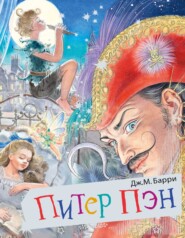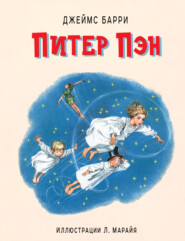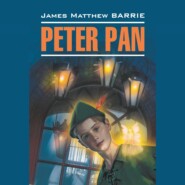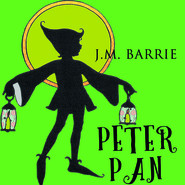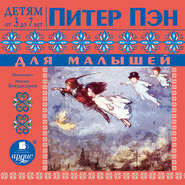По всем вопросам обращайтесь на: info@litportal.ru
(©) 2003-2025.
✖
When a Man's Single: A Tale of Literary Life
Автор
Год написания книги
2017
Настройки чтения
Размер шрифта
Высота строк
Поля
'My ambition, you must remember,' explained Dick, 'is to be Lord Chancellor or Lord Chief Justice, I forget which, but while I wait for that post I must live, and I live by writings (which are all dead the morning after they appear). Now such is the suspicion with which literature is regarded by the legal mind, that were it known I wrote for the Press my chance of the Lord Chancellorship would cease to be a moral certainty. The editor of the Scalping Knife has not the least notion that Noble Simms is the rising barrister who has been known to make as much by the law as a guinea in a single month. Indeed, only my most intimate friends, some of whom practise the same deception themselves, are aware that the singular gifts of Simms and Abinger are united in the same person.'
'The housekeeper here must know?' asked Mary.
'No, it would hopelessly puzzle her,' said Dick; 'she would think there was something uncanny about it, and so she is happy in the belief that the letters which occasionally come addressed to Abinger are forwarded by me to that gentleman's abode in the Temple.'
'It is such an ugly name, Noble Simms,' said Nell; 'I wonder why you selected it.'
'It is ugly, is it not?' said Dick. 'It struck me at the time as the most ridiculous name I was likely to think of, and so I chose it. Such a remarkable name sticks to the public mind, and that is fame.'
As he spoke he rose to get the two girls the cab that would take them back to the hotel.
'There is some one knocking at the door,' said Mary.
'Come in,' murmured Abinger.
The housekeeper opened the door, but half shut it again when she saw that Dick was not alone. Then she thought of a compromise between telling her business and retiring.
'If you please, Mr. Simms,' she said apologetically, 'would you speak to me a moment in the passage?'
Abinger disappeared with her, and when he returned the indifferent look had gone from his face.
'Wait for me a few minutes,' he said; 'a man upstairs, one of the best fellows breathing, has met with an accident, and I question if he has a friend in London. I am going up to see him.'
'Poor fellow!' said Mary to Nell, after Dick had gone; 'fancy his lying here for weeks without any one going near him but Dick.'
'But how much worse it would be without Dick!' said Nell.
'I wonder if he is a barrister,' said Mary.
'I think he will be a journalist rather,' Nell said thoughtfully, 'a tall, dark, melancholy-looking man, and I should not wonder though he had a broken heart.'
'I'm afraid it is more serious than that,' said Mary.
Nell set off on a trip round the room, remarking with a profound sigh that it must be awful to live alone and have no one to speak to for whole hours at a time. 'I should go mad,' she said, in such a tone of conviction that Mary did not think of questioning it.
Then Nell, who had opened a drawer rather guiltily, exclaimed, 'Oh, Mary!'
A woman can put more meaning into a note of exclamation than a man can pack in a sentence. It costs Mr. Jones, for instance, a long message simply to telegraph to his wife that he is bringing a friend home to dinner, but in a sixpenny reply Mrs. Jones can warn him that he had better do no such thing, that he ought to be ashamed of himself for thinking of it, that he must make some excuse to his friend, and that he will hear more of this when he gets home. Nell's 'Oh, Mary!' signified that chaos was come.
Mary hastened round the table, and found her friend with a letter in her hand.
'Well,' said Mary, 'that is one of your letters to Dick, is it not?'
'Yes,' answered Nell tragically; 'but fancy his keeping my letters lying about carelessly in a drawer – and – and, yes, using them as scribbling paper!'
Scrawled across the envelopes in a barely decipherable handwriting were such notes as these: 'Schoolboys smoking master's cane-chair, work up'; 'Return of the swallows (poetic or humorous?)'; 'My First Murder (magazine?)'; 'Better do something pathetic for a change.'
There were tears in Nell's eyes.
'This comes of prying,' said Mary.
'Oh, I wasn't prying,' said Nell; 'I only opened it by accident. That is the worst of it. I can't say anything about them to him, because he might think I had opened his drawer to – to see what was in it – which is the last thing in the world I would think of doing. Oh, Mary,' she added woefully, 'what do you think?'
'I think you are a goose,' said Mary promptly.
'Ah, you are so indifferent,' Nell said, surrendering her position all at once. 'Now when I see a drawer I am quite unhappy until I know what is in it, especially if it is locked. When we lived opposite the Burtons I was miserable because they always kept the blind of one of their windows down. If I had been a boy I would have climbed up to see why they did it. Ah! that is Dick; I know his step.'
She was hastening to the door, when she remembered the letters, and subsided primly into a chair.
'Well?' asked Mary, as her brother re-entered with something in his hand.
'The poor fellow has had a nasty accident,' said Dick; 'run over in the street, it seems. He ought to have been taken to the infirmary, but they got a letter with his address on it in his pocket, and brought him here.'
'Has a doctor seen him?'
'Yes, but I hardly make out from the housekeeper what he said. He was gone before I went up. There are some signs, however, of what he did. The poor fellow seems to have been struck on the head.'
Mary shuddered, understanding that some operation had been found necessary.
'Did he speak to you?' asked Nell.
'He was asleep,' said Dick, 'but talking more than he does when he is awake.'
'He must have been delirious,' said Mary.
'One thing I can't make out,' Dick said, more to himself than to his companions. 'He mumbled my name to himself half a dozen times while I was upstairs.'
'But is there anything remarkable in that,' asked Mary, 'if he has so few friends in London?'
'What I don't understand,' explained Dick, 'is that the word I caught was Abinger. Now, I am quite certain that he only knew me as Noble Simms.'
'Some one must have told him your real name,' said Mary. 'Is he asleep now?'
'That reminds me of another thing,' said Dick, looking at the torn card in his hand. 'Just as I was coming away he staggered off the couch where he is lying to his desk, opened it, and took out this card. He glared at it, and tore it in two before I got him back to the couch.'
There were tears in Nell's eyes now, for she felt that she understood it all.
'It is horrible to think of him alone up there,' she cried. 'Let us go up to him, Mary.'
Mary hesitated.
'I don't think it would be the thing,' she said, taking the card from Nell's hand. She started slightly as she looked at it, and then became white.
'What is his name, Dick?' she faltered, in a voice that made Nell look at her.
'Angus,' said Dick. 'He has been on the Press here for some months.'
The name suggested nothing at the moment to Nell, but Mary let the card fall. It was a shabby little Christmas card.










